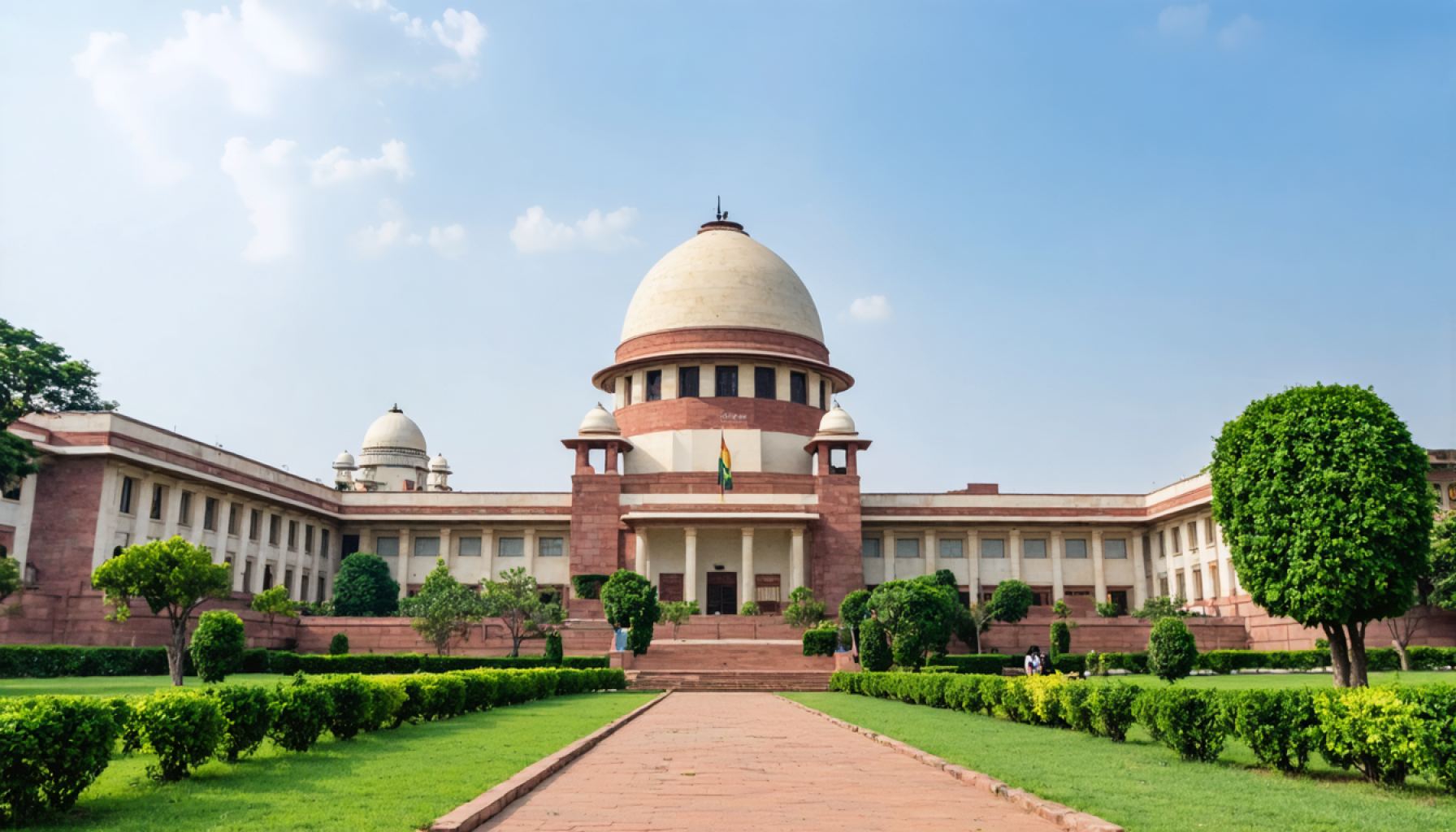- The Supreme Court of India emphasized the separation of powers, urging the legislature and government to regulate cryptocurrencies, not the judiciary.
- The decision highlights pressing concerns about cryptocurrency volatility, fraud, and the need for consumer protection, prompting public demand for clear guidelines.
- Petitioners sought judicial intervention for victims of crypto scams, but the Court redirected the responsibility to policymakers.
- The Central Government has recognized the regulatory gap, acknowledging the complexities of creating appropriate frameworks for digital currencies.
- The Supreme Court’s decision pushes India to balance its growing tech sector with the global cryptocurrency market, driving legislative urgency and careful consideration.
- The future of cryptocurrency in India depends on legislative actions rather than judicial rulings, affecting both national and global financial landscapes.
The quiet chambers of the Supreme Court of India reverberated with profound implications on Wednesday as the country’s highest judicial authority deftly sidestepped stepping into the turbulent waters of cryptocurrency regulation. The court’s decision was not a rebuff but rather a clarion call for the legislative and executive branches to assume their mantle as policymakers.
Amid the muted grandeur of the courtroom, the justices, BR Gavai and Augustine George Masih, meticulously underscored the separation of powers. Their verdict was as precise as it was poignant, echoing through the legal corridors with a message: the crafting of guidelines for digital currencies resides firmly within the grasp of the legislature and the government—not under the gavel of the judiciary.
Behind this decision lies a tapestry of public concern. The ever-escalating allure and volatility of cryptocurrencies have not only sparked investment surges but also awoken a Pandora’s box of fraud and financial ambiguity. Across the vast swathes of India, myriad complaints have emerged, a chorus of voices clamoring for clarity and consumer protection in this digital frontier.
Petitioners, armed with a growing number of pleas, implored the Court to act, arguing that the lack of regulation had left victims of crypto scams without recourse. However, the Court’s resolution directed these arguments back to the governmental forge where policies are tempered, molded, and enacted.
Yet, the Central Government’s previous formal intonations revealed caution and deliberation. In January 2024, it had acknowledged the void—a gap unfilled by statutory instruments or investigative protocols tailored for digital currencies. This acknowledgment spoke volumes, illustrating both the complexities of formalizing such a framework and the inherent challenges of regulating an entity as elusive as cryptocurrency.
India stands at a crossroads, with its burgeoning tech sector intertwined with the global dance of digital assets. The Supreme Court’s decision lights a beacon, urging the legislative bodies to delve into this digital conundrum with both urgency and prudence. As the digital age hurtles forward, India’s resolution to this challenge will not only impact its own citizens but reverberate across the global financial landscape.
In the shadows of these developments, one thing remains crystal clear: the future of cryptocurrency in India is being penned not in the hallowed halls of justice, but in the vibrant arenas of policy and governance. The story of cryptocurrency in India is still unfolding, and its next chapter hinges on decisive legislative action.
India Poised for Crypto Revolution: What the Supreme Court’s Stance Means for the Future
A Deeper Dive into India’s Cryptocurrency Landscape
The Supreme Court of India’s recent decision to refrain from directly regulating cryptocurrencies underscores a broader narrative of institutional recognition and strategic delegation. Here’s an in-depth analysis, examining the implications and exploring unanswered questions surrounding this evolving issue.
Key Facts and Insights
1. Evolving Regulatory Landscape: The Indian government’s hesitance in formalizing cryptocurrency regulation is symptomatic of the challenges posed by digital assets globally. Unlike traditional financial instruments, cryptocurrencies operate on decentralized technologies, making them hard to regulate. This necessitates a nuanced, technology-driven approach to crafting regulatory frameworks.
2. Consumer Protection Needs: As crypto scams proliferate, there’s an increasing demand for clear legal recourse for fraud victims. According to Chainalysis’ 2023 report, India ranks high in terms of crypto adoption, yet stands vulnerable due to inadequate protective measures. It’s crucial for future legislation to incorporate robust consumer protection laws.
3. Potential Economic Impact: Cryptocurrencies could play a significant role in India’s economic future. By embracing digital currencies, India could enhance financial inclusion and position itself as a leader in FinTech innovation. Blockchain technology presents opportunities for enhancing transparency and efficiency in various sectors.
4. Government’s Strategic Role: The Supreme Court’s decision effectively pushes the responsibility onto legislative bodies. The government has taken tentative steps towards understanding and possibly regulating cryptocurrencies through committees and working groups.
5. Global Cryptocurrency Trends: Worldwide interest in cryptocurrencies suggests an inevitable march towards digital assets integration. The IMF and World Bank have been discussing and advising on global standards—India’s actions could align more closely with these international guidelines to ensure cohesion.
Pressing Questions and Potential Answers
– What Does This Mean for Crypto Investors in India?
The current legal ambiguity necessitates cautious investment strategies. Investors should diversify and stay informed about potential regulatory changes, relying on exchanges that emphasize security and transparency.
– How Should the Legislature Proceed?
Immediate steps involve creating a multidisciplinary task force that includes technologists, economists, and legal experts to draft comprehensive regulations. These should focus on consumer protection, anti-money laundering measures, and fostering innovation.
Actionable Recommendations
1. For the Government: Expedite the formation of dedicated regulatory bodies and facilitate public consultation periods to ensure diverse stakeholder engagement in policy creation.
2. For Investors: Stay informed through reputable financial news platforms and seek guidance from financial advisors experienced in cryptocurrency investments.
3. For Tech Entrepreneurs: Engage with policymakers to contribute insights and innovate with a compliance-first approach. Encouraging dialogue between the tech community and government can pave the way for a balanced regulatory environment.
Pros and Cons of Cryptocurrency Regulation
Pros
– Enhances investor confidence
– Potentially lowers fraud occurrences
– Aligns India with global financial systems
Cons
– Over-regulation could stifle innovation
– Protracted legislative processes delaying growth
– Potential infringement on the decentralized ethos
Final Thoughts
The Supreme Court’s move represents a pivotal moment for cryptocurrency regulation in India, placing the onus on legislative courage and vision. It’s an opportunity for India to mold its digital future deliberately, influencing global financial dynamics.
For comprehensive tech and business news, visit BBC or The Economist for the latest industry trends and insights. Taking informed steps today ensures security and prosperity in tomorrow’s digital economy.













